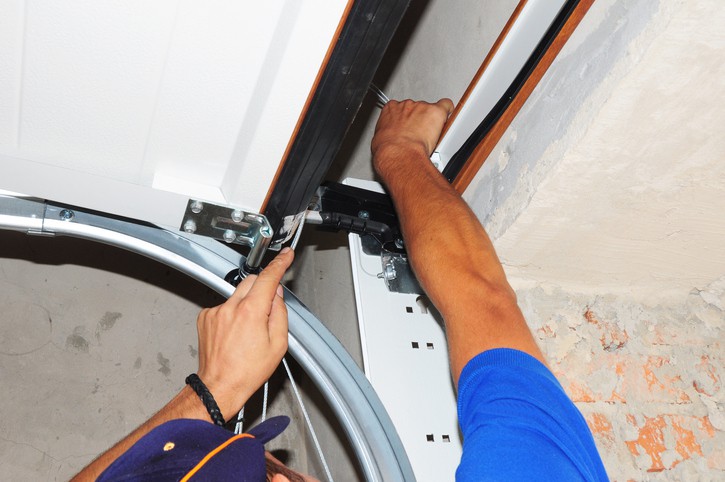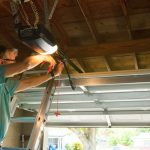
When it comes to your garage door’s performance, its torsion springs play a key role, and when yours break, your garage door will no longer lift and close to allow you in and out. Garage door springs have a certain shelf life, and every now and then they do require replacement so that your door can continue to perform.
So, just how long can you expect your garage door springs to deliver? Unfortunately, there’s no simple answer – it all depends on how much you open and close the door. Each time your garage door rises and falls, it completes one “cycle,” and typically, you can expect your garage door springs to last about 10,000 cycles. Thus, if you live alone and only open and close your garage, say, twice a day, your springs will likely last considerably longer than if you have a family of five coming and going regularly. If you have an average-sized family, you can expect your springs to last somewhere between seven and nine years, whereas if you live alone and don’t come and go too frequently, your springs might last 15 years or even longer.
What Leads to Breakage
Garage door springs can break over time due to a number of different factors, but in many cases, they break because of:
Wear and Tear
Just like the tires on your car, your garage door springs suffer wear over time.
Rust and corrosion will affect your garage door springs, but you can prevent rust-related damage to some degree simply by spraying your springs with WD40 every three months or so.
Cutting Corners
In some situations, builders try and cut corners by utilizing only one extra-long torsion spring for the entire door, rather than relying on one spring on each side. This means that one spring has to serve double duty, which in turn means faster spring failure.
Assessing the Strength of Your Springs
Want to know how your own garage door springs are holding up? Follow these simple steps to get an idea of their remaining strength.
Pull the Red-Handled Emergency Release Cord
Raise and lower the door by hand, taking care to listen for squeaking. If it occurs, apply some WD40 and see if the squeaking stops.
Raise the Garage Door Several Feet Off the Ground by Hand, and Then Release It
If it stays in place, you can safely assume your garage door springs are in good shape. If it promptly falls to the floor, however, it’s time to replace them.
If you have an especially large family, or if the people you live with come and go frequently, it may be worth it to invest in some extended life springs. They’re a little pricier than standard models, but they won’t require replacement at the rate of typical torsion springs. Finally, don’t try and replace them yourself – because of the pressure they’re under and how tightly wound they are, doing so can prove highly dangerous and is something best left to an experienced professional.





